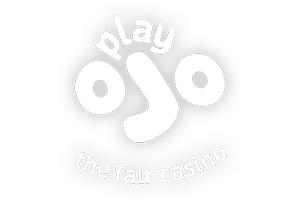Euro Casinos
Only nineteen of the twenty-seven members of the European Union are in the Eurozone, and therefore, use the euro currency. However, any player based in Europe (or even those beyond) can regularly deposit and bet using the currency. After the US dollar, it is the second most traded currency, with players worldwide finding it easy to gamble online.
One of the primary reasons the euro is favourable to other currencies is the way it is broken down. Launched in 2002, the euro is divided into one-hundred-euro cents, adopting a similar format to the US dollar and British pound sterling. In fact, the value of the euro often sits somewhere between those two currencies, making it convenient for many players.
Most major payment methods accept euros, too, so whenever you are based in the world, if you have easy access to the euro currency, any of our top EUR casinos should fit the bill nicely.
Casino List with EUR Currency
About the Euro in Gambling
As well as being the second most traded currency, the euro (€) is also the second-largest reserve currency, again after the US dollar. There is over €1.3 trillion in circulation. Virtually all European gambling sites accept the euro, as do many international betting domains. While it is not mandatory for any of the twenty-seven member sites to use the euro – some countries, such as Denmark and when it was a member, the UK have opt-outs – most do. You will note that even in non-eurozone countries, such as Norway, Sweden and Denmark, the euro can still often be used to wager on your favourite gambling games.
Which Countries Use the Euro?
The euro is the primary currency in 19 of the 27 member sites. Any future members of the European Union (EU) will most likely have to accept the euro as their primary currency. Former member, the United Kingdom refused to use the EUR currency, Poland, the Czech Republic, Denmark, Sweden, and a handful of other countries such as Bulgaria, Croatia, and Romania do not either, while EEA (European Economic Area) nations such as Norway and Iceland, and EU partners such as Switzerland have their own currencies.
The nineteen member sites that currently use the euro include: Austria, Belgium, Cyprus, Estonia, Finland, France, Germany, Greece, Italy, Latvia, Lithuania, Luxembourg, Malta, Netherlands, Portugal, the Republic of Ireland, Slovakia, Slovenia, Spain.
The euro is also unilaterally adopted in Montenegro and Kosovo, and there is a monetary agreement with principalities like Andorra, Monaco, San Marino, and the Vatican.
Online Gambling in Europe
Despite the European Union heavily promoting competition and an open, single market as its core value, there is a great deal of disunity across Europe regarding online gambling. Some countries have a blanket ban on gambling, while others have fully regulated markets. Nations such as Sweden and Belgium even have monopoly-like franchises on the types of casinos that can claim licenses from their national bodies. Countries such as Spain heavily tax gambling winnings, while most do not.
The quickest way to find euro online casinos for the country you live in is to check our country-by-country lists of top EUR casino sites.
With the UK having left the EU, Sweden is now the country with the highest share of online gambling activity, with over 58.8% of its eligible population betting online. This is followed closely by Denmark (54.6%), Finland (42.6%) and Slovakia (39.8%). However, these statistics do not weigh in the lack of parity between EU member states when it comes to the legality of online gambling. The stats would look differently if Germany and France had completely open markets, for instance.
Advantages and Benefits of Using EUR in Online Casinos
One of the primary benefits of playing at euro online casinos is that the currency is widely accepted, even in countries where the EUR is not favoured over local options, such as Polish zloty or Swedish kroner. This one size fits all currency is easy to obtain, simplistic to use, and is commonly accepted amongst all major European payment providers.
You should not have to worry about conversion fees when you swap between currencies. Moreover, as most of the major gambling countries in Europe use the euro, the promotions and bonuses tend to be the same from nation to nation. For instance, players in Portugal are just as likely to claim the same value offer as those in Finland.
How to Choose the Best EUR Casinos
Before you head off to choose the best EUR casinos to play, it is worth considering a few things. We tend to look for the following things when selecting the best euro currency casinos to play at, and you should do the same…
- Be sure that both your payment provider and your chosen casino accepts the euro currency; this way, you can avoid conversion fees.
- All the best EUR online casinos will be licensed in Europe. In most cases, this means Malta or a national licensing body, such as the Swedish Gambling Commission or Belgian Gambling Commission. UK and Gibraltar licensed casinos are also trustworthy and accepted in Europe.
- You should not expect to see costly fees attached to deposits or withdrawals. Our top euro casinos will not apply them to your transactions.
- All the best European online casinos will offer customer support in a variety of languages. Nationally licensed casinos may not do this, but most casinos accepting the euro cater to players across the continent.
- There are many payment methods across Europe, so be sure to choose a top casino that provides you with options based on where you reside.
Popular Banking Methods with Euros
Most euro casinos accept the same major payment methods. However, nationally licensed ones may opt to be a touch more specific with the payment providers they accept, such as Trustly for Scandinavian casinos, Sofort for Germans, and Przelewy24 for Poles. The most accepted payment options for euro depositors include:
- Credit/debit cards such as VISA, MasterCard, Maestro, and VISA Electron
- Prepaid cards like Paysafecard
- E-Wallets such as Neteller, Skrill, and EcoPayz
- Pay-by-mobile options such as Zimpler
- Cryptocurrencies like Bitcoin, Ethereum, Dogecoin, Litecoin and Bitcoin Cash
Because we are talking about a currency that spans many countries, not every payment option is open to every player. French players will not use Klarna (for instance), and PayPal has limited availability. However, with such a broad array of payment methods at your disposal, finding something that ticks your boxes at Euro online casinos will not be challenging.








